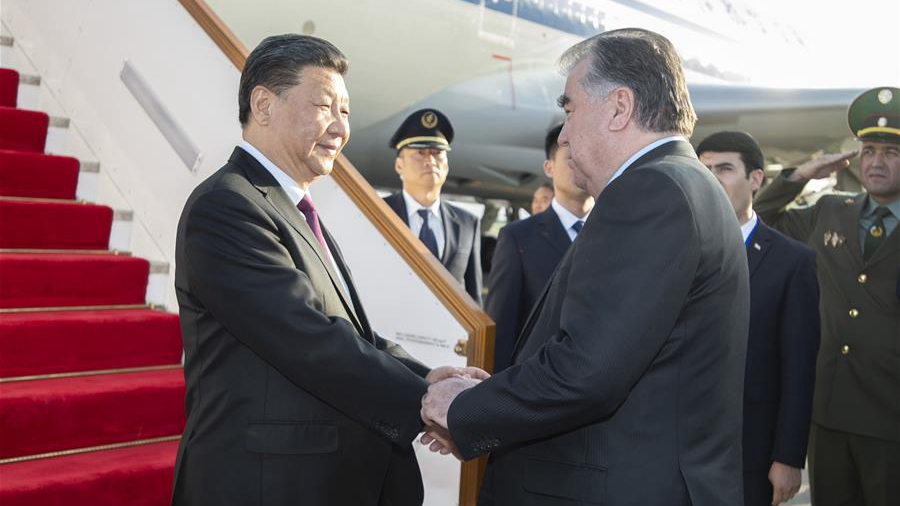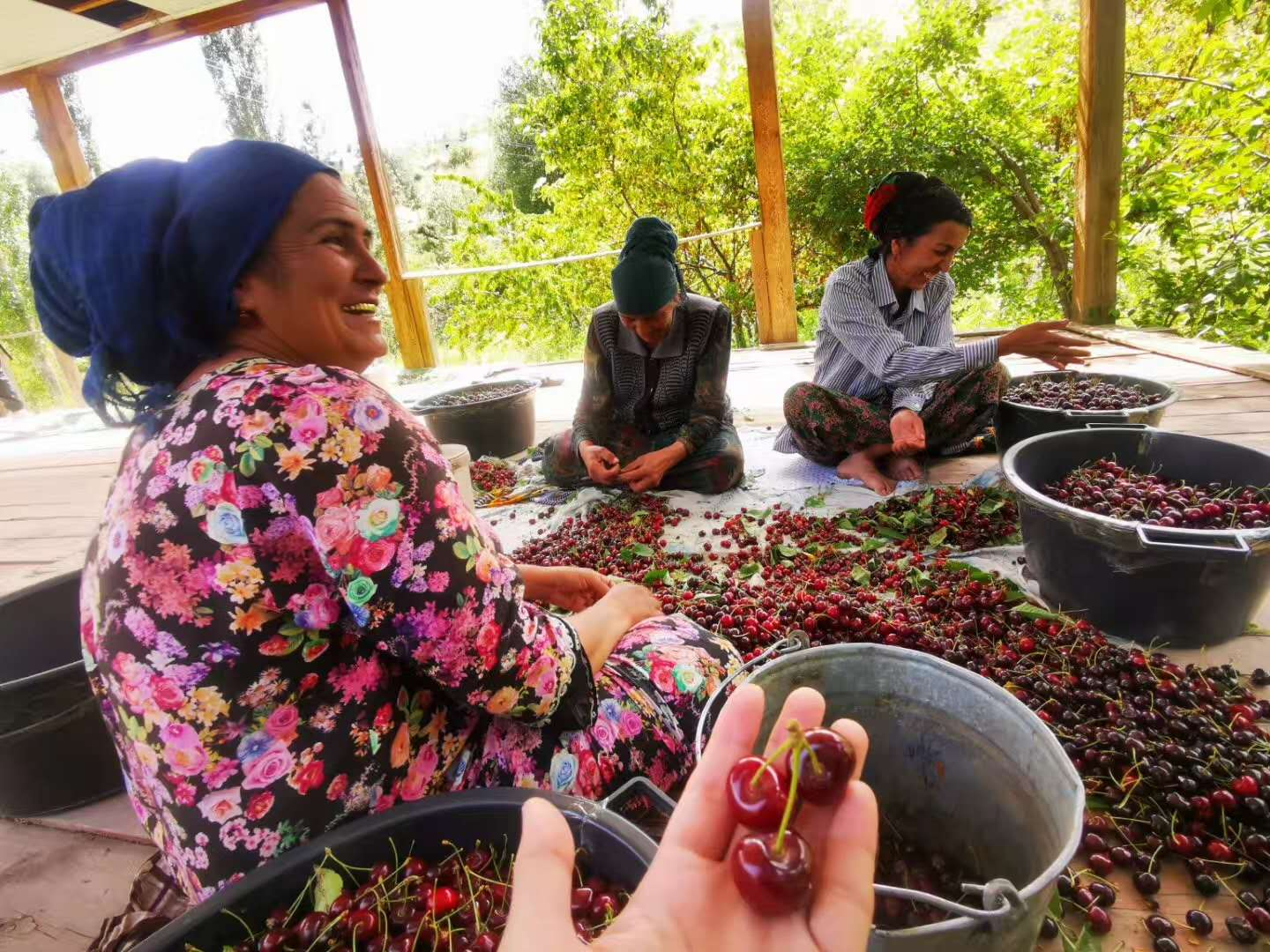

Chinese President Xi Jinping quoted a proverb in Tajikistan in his signed article in Tajik media, which says that “with perseverance, ants will be able to move mountains.” Over the years, China has worked with Tajikistan unremittingly to tackle challenges incrementally, much like the proverb suggests.
China and Tajikistan are close neighbors connected by mountains and rivers with a 495-kilometer-long common border. When Tajikistan gained independence 27 years ago, China was among the very first countries to recognize it.
Tajikistan is one of China's closest partners in the Belt and Road cooperation. It was the first to sign a cooperation MoU with China on the Silk Road Economic Belt.
Pursuing shared future
China is now the biggest source of investment and a major trading partner for Tajikistan. The cooperation between the two has resulted in a number of signature projects.
Over 90 percent of Tajikistan's surface area is covered by mountains; therefore, its transportation system mainly relies on roads.
We drive along the Dushanbe-Chanak Highway in Tajikistan, which is built by the Chinese construction company China Road and Bridge Corporation (CRBC). It spans the north and south, turning previously isolated areas into a thoroughfare.

The Dushanbe-Chanak Highway in Tajikistan. /CGTN Photo
The highway is 380 kilometers long. It has slashed driving time from 12 hours to only four, significantly facilitating the journey for the locals. The highway includes record-breaking projects, such as the Shahristan tunnel, the longest in Central Asia, and a bridge over Syr Darya River, the longest in Tajikistan.
Apart from this, we also saw other signature projects from Chinese companies.
The Vahdat-Yavan Railway has been completed along with bridges and tunnels, connecting the previously separated railways in southern and northern Tajikistan. The construction of a thermal power plant in Dushanbe has made winter brown-outs in the capital city a thing of the past.
The 500-kilowatt high-voltage transmission line through the Districts of Republican Subordination has made the power grid in northern Tajikistan more stable and safer.
Agricultural cooperation bears fruits
Agriculture is the pillar industry of Tajikistan. Farming accounts for 70 percent of the country's agricultural industry, and 90 percent of farmers are growing fruits.
I visited a cherry orchard run by a Chinese businessman Kang Zhongyu, who has been living in Tajikistan for over 20 years. His orchard is one of the largest cherry orchards in Tajikistan, with more than 40,000 cherry trees planted in the mountainous country.

Full-grown cherries are collected by Tajik people. /CGTN Photo
May, June and July are the months to see the harvest of cherries. At the peak of the harvest season, more than a thousand farmers are needed in this orchard.
Kang not only made a financial commitment, but also brought Chinese agricultural and farming experience here.
China imported nearly 200,000 tons of cherries last year valued at 1.3 billion U.S. dollars, including some from Tajikistan. Agricultural cooperation under that framework is expected to see more opportunities and bring more benefits to both peoples.
Cultural exchanges boom
I visited the Confucius Institute in Tajik National University. The number of students learning Chinese in the Confucius Institute at Tajik National University has increased from fewer than 200 to over 4,500 since its establishment in 2008.
The institute offers a variety of classes from Chinese dancing, calligraphy, Chinese instruments, to paper cutting, martial arts, traditional Chinese medicine and tea culture.
Kosimov Farruh Adulmuninovinch, the director of the Confucius Institute, says the institute is the best way for people-to-people exchanges between the two countries.

Tajik students are playing traditional Chinese musical instrument Guzheng at the Confucius Institute in Tajik National University, Tajikistan. /CGTN Photo
Ma Chi, the deputy director of the institute, said they are here practicing the ideas of Confucius.
On China's overseas Confucius Institutes, Ma said that the truth will emerge that China is not taking resources from Tajikistan and they are just building bridges between the two cultures.
President Xi said the two countries need to forge a stronger people-to-people bond. By deepening cooperation in language education, translation of classics, archaeological excavation, cultural heritage protection, and film and TV program production, the two can better draw on what our two ancient civilizations have to offer each other.
(If you want to contribute and have specific expertise, please contact us at opinions@cgtn.com)

Copyright © 2018 CGTN. Beijing ICP prepared NO.16065310-3
Copyright © 2018 CGTN. Beijing ICP prepared NO.16065310-3